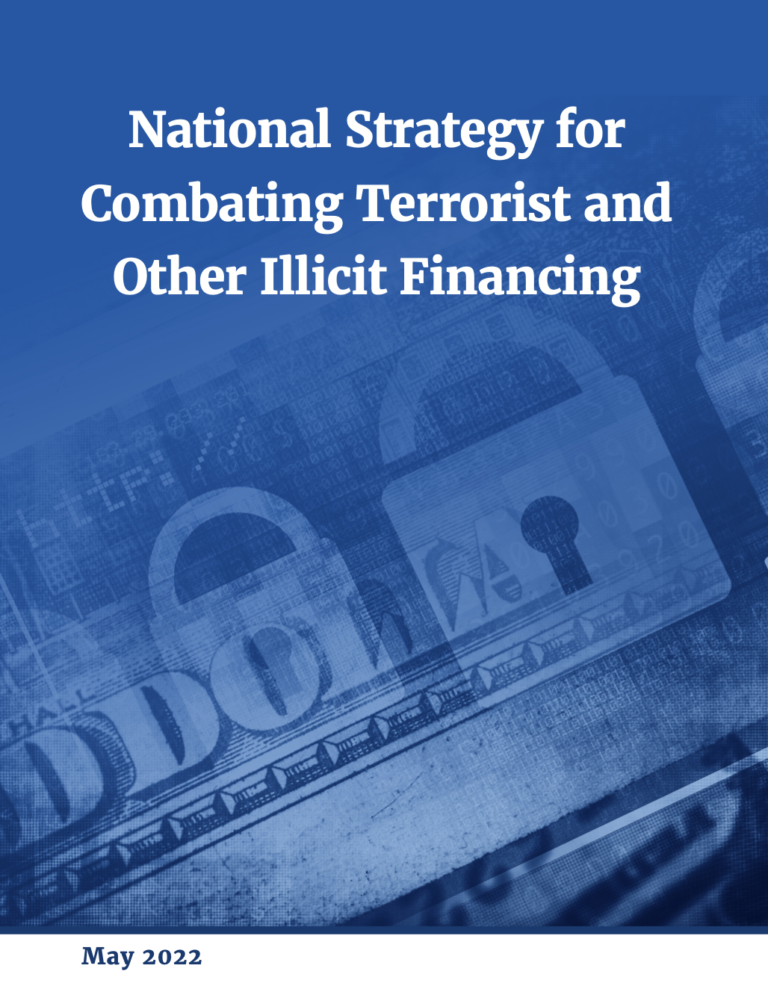Combating the pernicious impact of illicit finance upon our financial system, economy, and society is integral to strengthening U.S. national security and prosperity. While there has been substantial progress in the United States and globally in addressing this challenge, the U.S. anti-money laundering/countering the financing of terrorism (AML/CFT) regime must adapt to an evolving threat environment, along with structural and technological changes in financial services and markets, for continued success in this critical fight.
As detailed in the priorities and supporting actions in this Strategy, we will strengthen our laws, regulations, processes, technologies, and people so that the U.S. AML/CFT regime remains a model of effectiveness and innovation. First, we will progress on closing legal and regulatory gaps that allow criminals and other illicit actors to move funds and purchase U.S. assets anonymously. This includes not only completing implementation of the beneficial ownership information (BOI) reporting and collection regime envisioned by the Corporate Transparency Act (CTA), but also addressing the misuse of real estate, along with the uneven application of AML/CFT obligations for certain types of financial entities, products, and services, to close off opportunities for regulatory arbitrage. Second, our AML/CFT regulatory and supervisory process for financial institutions will continue its modernization to become more efficient and effective and to ensure that supervision for certain non-bank financial institutions is adequately resourced.
Third, we will strengthen our operational framework for disrupting illicit finance activity and denying criminals and other national security threats access to the United States and the U.S. financial system. This requires enhancing coordination and information sharing with the private sector, as well as making sure our law enforcement and other authorities have the right tools, technology, and support to combat financial crime. Fourth, we must build out a regulatory framework that allows our financial system and markets to capture the benefits of technological innovations while addressing the potential for misuse.
Doing so will continue to make the United States attractive to licit and economically beneficial investment while keeping out illicit proceeds and other funds linked to continuing economic inequality and other social ills.

